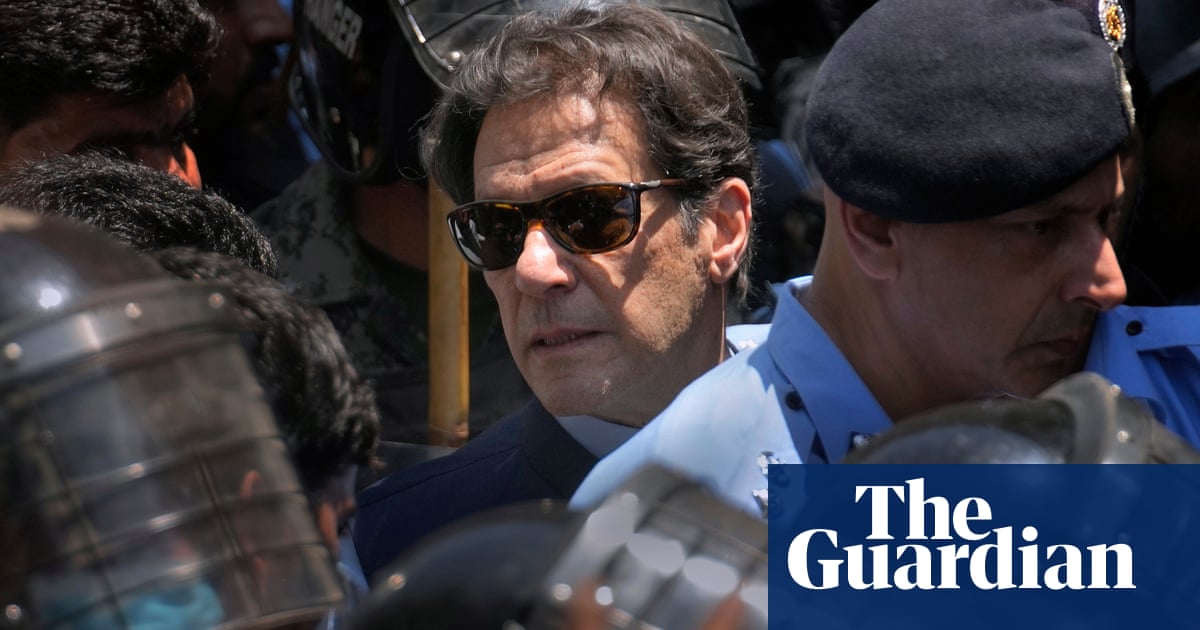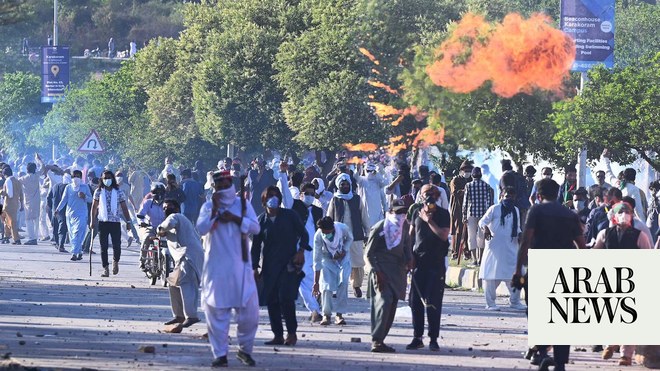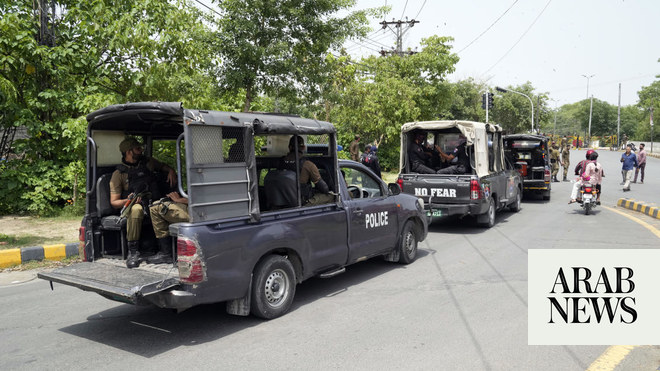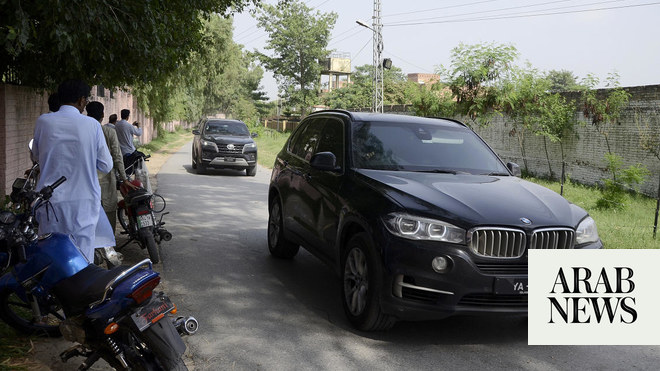
Pakistan’s former prime minister Imran Khan has escalated his criticism of the country’s powerful military, accusing the head of the army of harbouring a “personal grudge” against him and ordering his arrest and a crackdown on his party.
“It is personal. It’s got nothing to do with national interest,” Khan told the Guardian in an interview at his home in Lahore, after a dramatic week in which he was arrested at Islamabad’s high court by almost 100 paramilitary officers on Tuesday and held in police custody, in connection with a land corruption case.
“Without any doubt, the military is behind my arrest,” he said. “Pakistan is now being run by the army chief. The crackdown on us is by the army chief.”
Arrests of political rivals are nothing new in Pakistan – when Khan was prime minister, several senior opposition leaders were jailed, some for more than a year – but such anti-military rhetoric is unprecedented in Pakistan’s politics, where the army has long been seen as the country’s kingmaker and exerts enormous power.
Khan was released from police custody on Friday evening, after supreme court judges ruled that his arrest was “illegal and invalid” and the high court granted him bail.
Known for his populist politics and firebrand speeches, Khan, 70, fell out spectacularly with his former military allies after he accused them of orchestrating his removal from power in April last year. He has since accused them of two attempts on his life.
Khan alleged his arrest, and that of seven senior members of his Pakistan Tehreek-e-Insaf (PTI) party, was symptomatic of the unrivalled power wielded by the military.
“The military is above law; the ISI [military intelligence agency] is above law,” said Khan. “And if you have anyone above the law, then you descend into the law of the jungle. They can pick up people, detain people, disappear people. They try and influence judges; they clamp down on the media. There’s no accountability for the institution. It’s not democratic.”
The military has taken control of Pakistan in three separate coups since independence and have maintained an iron grip on politics during civilian governments.
Former politicians who have attempted to go up against the military using less stringent language have found themselves toppled, arrested, exiled or assassinated.
The relationship between Khan and the current army chief, Gen Asim Munir, is regarded to be acrimonious after Khan sacked Munir from a top military intelligence post in 2019 when he was prime minister.
Khan alleged that Munir and other senior military figures had a “vested interest to ensure that I don’t come back to power”.
“They’re petrified. They know that we will sweep the elections, so they’ve been looking for an excuse to put me in jail,” said Khan.
Khan’s political career has been inextricably entwined with the military establishment. Having been in the political opposition for more than a decade as leader of the PTI, it was not until he began to get the military’s backing that Khan was seen as a viable leader.
He was elected prime minister in 2018 amid allegations the military had rigged the poll in his favour – a charge Khan denies.
For the first two years of his government, Khan and the military worked closely together in a “hybrid regime”, with the military holding powerful posts and seen as largely calling the shots.
However, Khan grew resentful of the army’s control, accusing them of blackmailing his government, while Khan’s erratic policies, his scuppering of a deal with the International Monetary Fund and repeated criticism of the US frustrated the military.
Khan was toppled in a vote of no confidence, which he accused the then chief of the armed forces, Gen Qamar Javed Bajwa, of orchestrating.
The former prime minister has made a number of explosive but often unsubstantiated accusations since he was removed from power, including alleging that the US government colluded with the military to bring him down.
The US government vehemently denied these allegations and a leaked audio recording showed Khan allegedly discussing how to “play with” a diplomatic communication to make it look like the US had interfered.
Speaking to the Guardian, Khan further accused then-army chief Bajwa of hiring Pakistan’s former ambassador to Washington, Hussain Haqqani, to lobby against Khan in the US. In response, Haqqani told the Guardian he had sent a legal notice to Khan for defamation, asking him to retract his “lies”. “Imran Khan does not feel the need to offer any evidence of allegations he makes,” said Haqqani.
Khan’s deep-rooted relationship with the military has left critics sceptical of his anti-military position, alleging it is instead a means to weaken the army’s leadership and gain greater control over the institution, especially if he returns to power. Khan denied this.
“We don’t want any backing,” he said. “We want them to be neutral; we just want free and fair elections.”
Khan claims to be facing more than 100 legal cases. Among the most high profile is the Toshakhana case, in which Khan is alleged to have sold lavish state gifts presented by the Saudi crown prince worth billions of dollars and concealed the profits.
The election commission recently found him guilty, and referred the case to the high court. Khan is also accused of concealing illegal foreign funding for the PTI, which he denies.
He alleged that all the cases were politically motivated by the coalition government, led by Shehbaz Sharif, who does not want to face him in the next election. He said that though he feared imminent arrest again, he believed there was “nothing they can do to disqualify me from politics or dissolve my party, which has mass public support”.
Khan said he was waiting for the government to agree to dates for provincial elections and the general election, which he is pushing to bring forward from its due date of October.
On Sunday, his party held a nationwide “freedom protest”. If no elections are announced soon, he said, “then we will have to go into the streets to defend our constitution”.












